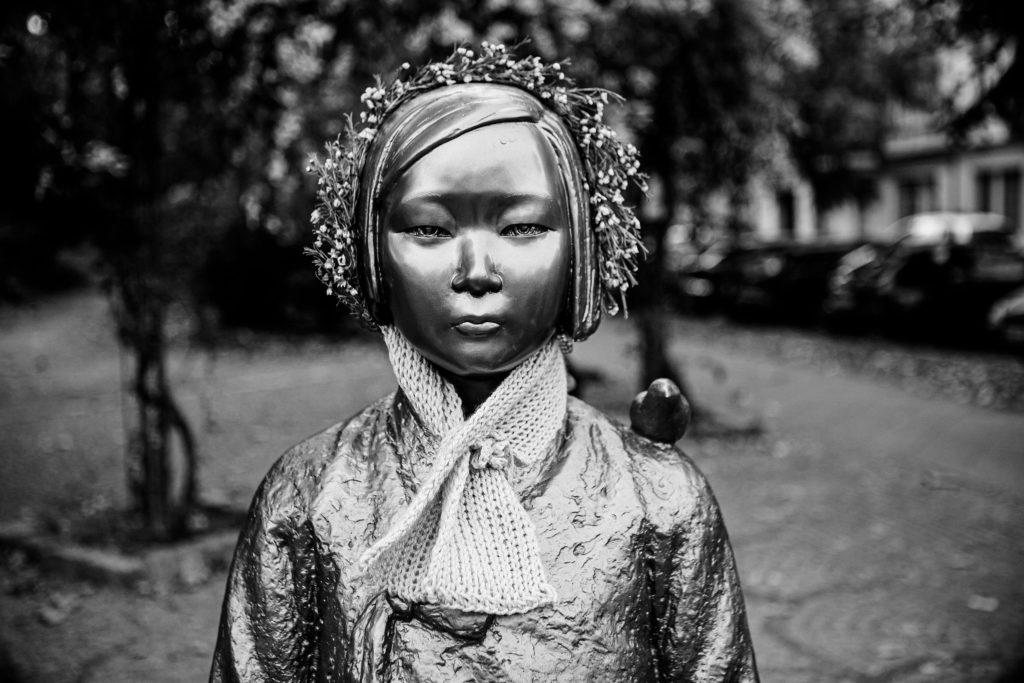The Peninsula
Contentious Domestic Discourse Around Japan

A sculptor couple known for their comfort women statues around South Korea won a libel suit against an internet media outlet that claimed that the artists used a Japanese man as a model in one of their statues. Although this controversy does not directly involve the Japanese state, the harm that this accusation caused the couple’s credibility reiterates how the historical legacy issue remains a contentious domestic issue.
Bilateral tensions between Seoul and Tokyo rose over the past several years in response to issues involving remembrance of historical abuses such as Sado Island Mines and comfort women. Reflecting these tensions, Japan was until recently the most-disliked country among South Koreans.
However, conversations about Japan cause controversy even when bilateral tensions are not at the forefront. This can be partly attributed to how the Korean pro-democracy movement during the country’s authoritarian rule saw its struggle as a continuation of the resistance against Japanese imperialism. As a consequence, conversations about Japan today are larger discussions that go beyond commentary on the nature of the bilateral relationship and speak to people’s sense of agency in society. This may be particularly true for Koreans who actively participated in the pro-democracy movement and vote for liberal parties today.
This briefing comes from Korea View, a weekly newsletter published by the Korea Economic Institute. Korea View aims to cover developments that reveal trends on the Korean Peninsula but receive little attention in the United States. If you would like to sign up, please find the online form here.
Korea View was edited by Yong Kwon with the help of Kayla Harris, David Lee, Sarah Marshall, and Mai Anna Pressley. Picture from the flickr account of Hossam el-Hamalawy.
